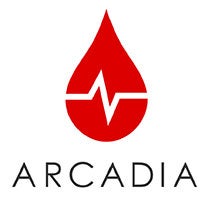
ARCADIA: Atrial Cardiopathy and Antithrombotic Drugs in Prevention After Cryptogenic Stroke
Supported by: BMC-Pfizer Partnership and Roche Diagnostics & National Institute of Neurological Disorders and Stroke (NINDS)
Principal Investigator at BMC: Julie Shulman, MD
Primary Research Contact: Veronica Romines, BS (617-638-5492)
Summary
ARCADIA is a multicenter, biomarker-driven, randomized, double-blind, active-control, phase 3 clinical trial of apixaban versus aspirin in patients who have evidence of atrial cardiopathy and a recent stroke of unknown cause. Eleven hundred subjects will be recruited over 2.5 years at 120 sites in the NIH StrokeNet consortium. Subjects will be followed for a minimum of 1.5 years and a maximum of 4 years for the primary efficacy outcome of recurrent stroke and the primary safety outcomes of symptomatic intracranial hemorrhage and major hemorrhage other than intracranial hemorrhage.
Enrollment Criteria
Inclusion Criteria:
- Age ≥45 years
- Clinical diagnosis of ischemic stroke + brain imaging to rule out hemorrhagic stroke
- Modified Rankin Scale (mRS) score ≤4
- Ability to be randomized no later than 120 days after stroke onset
- ESUS, defined as all of the following:
- Stroke that is not lacunar. Lacunar is defined as a subcortical (this includes pons and midbrain) infarct in the distribution of the small, penetrating cerebral arteries whose largest dimension is ≤1.5 cm on CT, ≤2.0 cm on MRI diffusion images, or ≤1.5 cm on MRI T2-weighted images. The following are not considered lacunes: multiple simultaneous small deep infarcts, lateral medullary infarcts, and cerebellar infarcts. Patients with a clinical lacunar stroke syndrome and no infarct on imaging are excluded.
- Absence of extracranial or intracranial atherosclerosis causing ≥50% luminal stenosis of the artery supplying the area of ischemia. Patients must undergo vascular imaging of the extracranial and intracranial vessels using either catheter angiography, CT angiogram (CTA), MR angiogram (MRA), or ultrasound, as considered appropriate by the treating physician and local principal investigator. Training will be provided to the investigators that will encourage the use of CTA and MRA over ultrasound for the evaluation of patients to minimize operator-dependent variation.
- No major-risk cardioembolic source of embolism, including AF, intracardiac thrombus, mechanical prosthetic cardiac valve, atrial myxoma or other cardiac tumors, mitral stenosis, myocardial infarction within the last 4 weeks, left ventricular ejection fraction >30%, valvular vegetations, or infective endocarditis). Patent foramen ovale is not an exclusion. All patients must undergo electrocardiogram, transthoracic or transesophageal echocardiography (TTE or TEE), and at least 24 hours of cardiac rhythm monitoring (Holter monitor or telemetry or equivalent). Additional cardiac imaging, such as cardiac MRI or cardiac CT, will be performed at the discretion of the local treating physician and principal investigator. Additional cardiac rhythm monitoring, such as monitored cardiac outpatient telemetry (MCOT) or an implanted cardiac monitor, will be at the discretion of the treating physician and local principal investigator. Although standard-of-card echocardiography will be used to make diagnoses of cryptogenic stroke and for atrial cardiopathy criteria, these echocardiograms will be centrally read as well to confirm local readings and provide feedback to local sites.
- No other specific cause of stroke identified, such as arteritis, dissection, migraine, vasospasm, drug abuse, or hypercoagulability. Special testing, such as toxicological screens, serological testing for syphilis, and tests for hypercoagulability, will be performed at the discretion of the treating physician and local principal investigator. Training will be provided to local investigators to consider obtaining hypercoagulability tests among patients with patent foramen ovale.
Exclusion Criteria:
- History of AF, AF on 12-lead ECG, or any AF of any duration during heart-rhythm monitoring prior to randomization.
- Clear indication for treatment-dose anticoagulant therapy, such as venous thromboembolism or a mechanical heart valve.
- Left ventricular ejection fraction <30%
- Definite indication for antiplatelet agent (e.g., aspirin or clopidogrel after implantation of a coronary artery stent)
- History of spontaneous intracranial hemorrhage
- Chronic kidney disease with serum creatinine ≥.5 mg/dL
- Active hepatitis or hepatic insufficiency with Child-Pugh score B or C
- Clinically significant bleeding diathesis
- Anemia (hemoglobin <9 g/dL) or thrombocytopenia (<100 x 109/L) that is chronic in the judgment of the investigator
- GI bleeding within the past year considered clinically significant by the investigator
- Pregnancy risk:
- Female patient who is known to be pregnant
- Female patient who is sexually active and premenopausal without a negative pregnancy test performed after stroke onset
- Female patient who is sexually active and premenopausal, and who does not commit to adequate birth control
- Male patient who is sexually active with a premenopausal female partner, and who does not commit to adequate birth control
- Known allergy or intolerance to aspirin or apixaban
- concomitant participation in another clinical trial involving a drug or acute stroke intervention
- Considered by the investigator to have a condition that precludes follow-up or safe participation in the trial
- Inability to obtain written, informed consent from patient or surrogate for trial participation
Status: Actively enrolling patients
